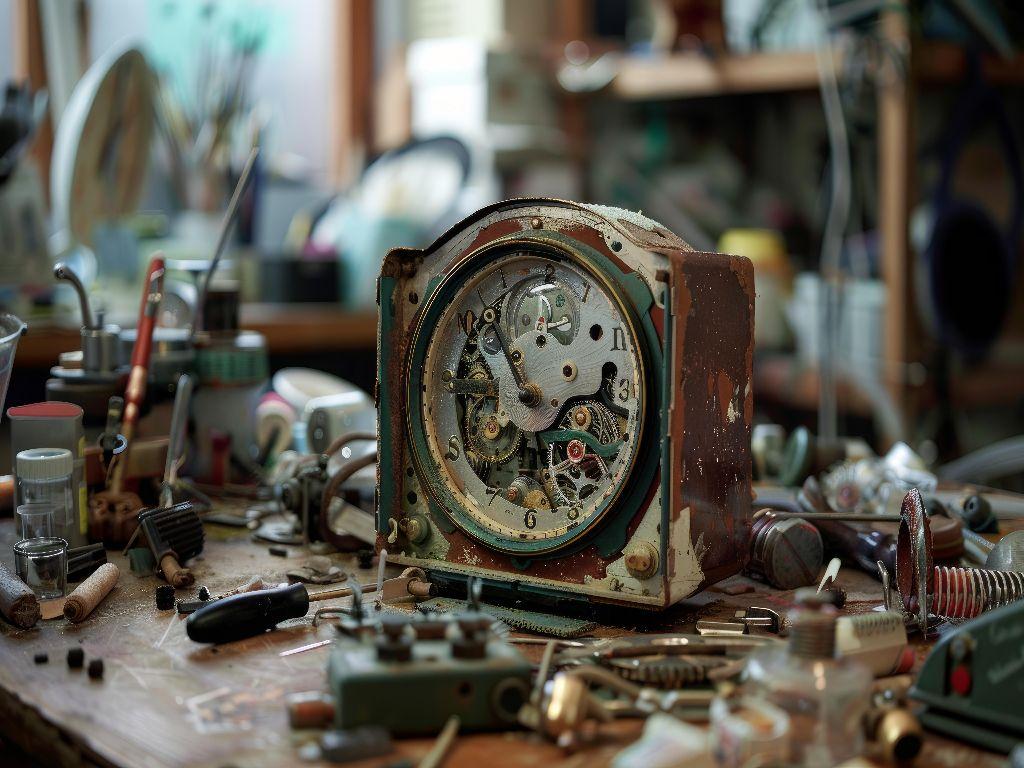The workshop of silent clocks

In the backyard of a house with crumbling plaster lay a workshop where clocks stood still. Not because they were broken, but because their owners had asked for them to. The clockmaker's name was Edda, and she was the kind of person who didn't measure time, but rather accompanied it. They brought her clocks to stop on days they didn't want to forget: the first kiss, the last look, the hour of birth, the moment of forgiveness. Edda stopped the clocks not to deny time, but to give it a place. One evening, a man came in, his suit tired and his eyes the color of twilight. In his hand, a pocket watch, heavy, gold, polished too often. "Set it to stop," he said, "at twelve past nine." Edda raised an eyebrow. "The moment she left," he explained, and there was no bitterness, only a sea. "I forget the sounds," he added. "The cup gently touching the table, her breath, just once more..." He broke off.
Edda took the clock and opened the lid. A tiniest fuzz of hair still clung to the glass, perhaps from then, perhaps from forever. "I can stop it," she said. "Or I can show you how to move on without revealing the clock." He looked at her, both perplexed and hopeless. "How is that supposed to work?"
Edda led him into the back room, where the silent clocks lay. There were many of them. Some showed times that were obviously festive, others mundane minutes. "You see," she said, "all these people have said: Here. I want to stay here. That's nice. But time isn't just movement. Time is also proximity. If you stop this clock, it will be faithful to you. But you will move, no matter how you resist. Perhaps..."—she smiled, and her smile wasn't consolation, but a suggestion—"...we set two clocks? One stays, the other goes with you."
They chose a second clock together, a simple one, with a light ticking reminiscent of a heartbeat. Edda set the gold one to twelve past nine, closed the lid. Then she took the simple one and asked the man to tell her another time. He thought for a long time. "This evening," he then said. "When I find the courage to tidy up the apartment." Edda noted the time, smiled: "Then this clock will run when you leave. And when you stand, it stands with you."
He came more often over the next few weeks. He brought coffee and sat down on the workbench. Edda let him talk, not in long speeches, but in sentences that were like screws: small, necessary. He talked about tidying up, about his first laugh, which came like a bird perched briefly on the windowsill. He talked about the view out the window he'd never noticed, and about how beautiful the trees are when they don't have to prove anything.
Once he brought back the gold watch. "I think it's gotten too heavy," he said. Edda nodded. "Then we'll put it down. Not away. There." They placed the watch in a velvet bowl that Edda had for such moments. "What if I forget?" he asked. "Then you're reading yourself," Edda said. "Memories aren't in watches. Watches are just the friendly guards at the door."
The workshop remained a place where one didn't fight time, but held its hand. People came, put something down, took something away. Edda woke watches when someone was ready again. And sometimes, when the evening was warm and a violin was practicing somewhere, one could hear a chorus of very faint ticking in the backyard. It sounded like what remains when pain casts off its cloak: presence.


